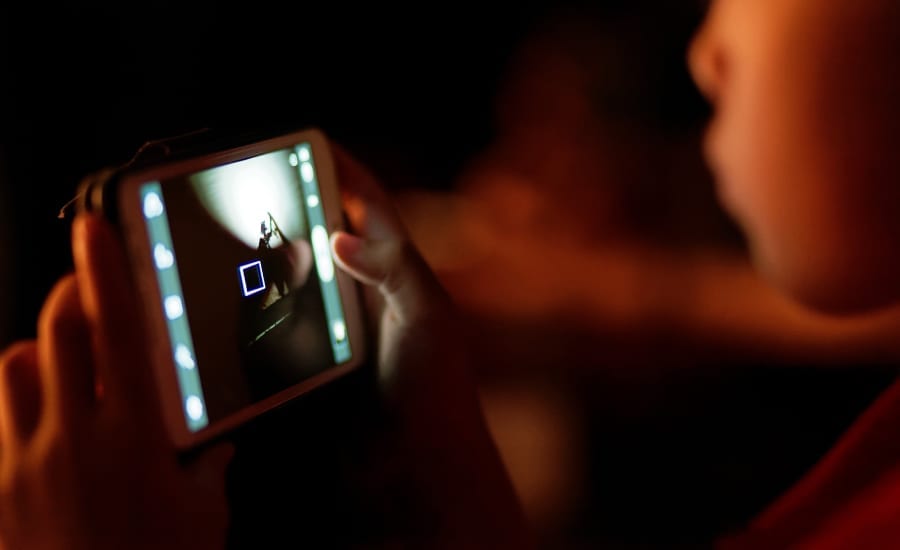Summary:
If you are a parent or guardian of a child that that spends time online, especially during COVID-19, this guide is for you! Through this guide you will:
-
Understand what online child sexual exploitation is, who the offenders are and how they approach children online
-
Know where online children are more exposed to risks
-
Explore different protective measures to keep children’s online experience safe
-
Receive useful tips to overcome challenges to communication with your child during COVID-19
As a parent or guardian of a child, you have the ability to help prevent these risks for children and mitigate their exposure to online risks. This guide will provide you with the main information on online risks, and tools to help you stay involved in children’s online lives, educate them towards smart online choices, and encourage open dialogues and healthy practices with them during this pandemic to keep them safe from online harm.Let’s start with understanding risks of online child sexual exploitation
As parents, it is scary to think of our children being exposed to danger. We may think that if they are at home within our reach, they are already protected and safe from harm. While they are sitting in the comfort of their room, we may easily overlook the risks involved with their internet access through a computer, smartphone or tablet. However just as children are at risk of sexual exploitation offline, they are exposed to such risks online.
-
Do you know what online child sexual exploitation is?
-
What we know about offenders and how they approach children online
An example can be seen in a case APLE dealt with where a child was extorted online for sexual purposes. In this case, a 15-year-old girl started communicating on Facebook with someone who looked her age by his picture. They messaged online and exchanged pictures. The offender then used photoshop to make the photo she sent seem as though she was naked and threatened to send it to all her friends if she won’t send him real naked photos of herself. Out of fear, she ended up sending him the pictures he demanded, but the offender didn’t stop there and just asked for more. The girl was frightened and tried to commit suicide, but luckily, she was found in time and rescued. The report ALE received on the online exploitation allowed our hotline analyst to take action towards removing the abusive content from the web, and enabled the girl to receive help.
It is important to acknowledge that children are never to blame for their abuse, and it is always the offender’s fault. When a child has been sexually exploited online it is normally after they were groomed, tricked, coerced or manipulated into participating in the sexual act by the offender. Even if they actively communicate with their perpetrator and send out sexual material themselves, they do so without fully understanding what they are agreeing to or what the consequences of their actions are.
-
Where on the internet does child sexual exploitation happen?
To learn more about different risks on online platforms and how to keep them safe, check here.
-
An important point to remember about the impact of online child sexual exploitation
Even though there are risks for children online, there are many things you can do in order to reduce children’s exposure to these risks and protect them from harm when they are online. Following are a few tips you can apply to promote a safe online experience for your child.
-
Stay involved in what apps and devices your child uses and how to keep them safe
Once you know what apps they use make sure to set appropriate privacy settings on devices and applications your child uses. It is best when this is done together with them while explaining the importance of doing so.
If you are not familiar with these applications, don’t worry and seek expert’s advice. You may contact APLE to ask for help.
-
Know who your child is communicating with online and discuss the risks involved
If you wish to know more about what questions to ask or how to have an open communication with your child, you can talk to our staff and seek their advice.
-
Encourage your child to make healthy and smart online choices
-
Be alert to change in behavior your child may have as a result of their online activities and be supportive
Remember those signs and stay alert!
-
Know what to do in case of abuse and where to report
If you feel the pandemic is causing extra stress on the relationship with your child, these tips can help strengthen your relationship and encourage healthy practices
Another contributing factor to children’s online safety is setting an environment that encourages healthy practices and open communication. A positive relationship with your child will increase their willingness to share with you their online activities as well as turn to you whenever they are in distress. It will also improve your ability to detect if something is wrong and if they need assistance.
The increased time at home together with your child during this time, may raise challenges and barriers to communication that are new to you that can be difficult to deal with. Following are a few tips to keep the relationship with your child communicative and healthy, especially during the time of the pandemic.
-
Children need structure, and even more so during the time of COVID 19
-
Within structure, try to allow children to build their sense of control
-
Encourage activities that keep both mind and body active while spending quality time together
-
Dealing with stress and negative emotions for a constructive relationship


